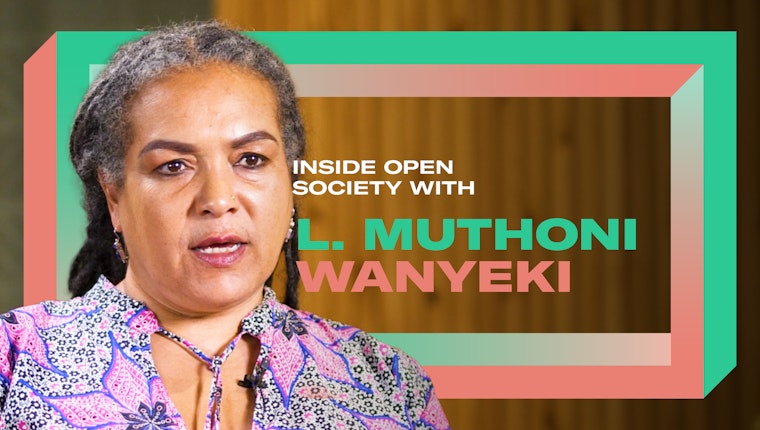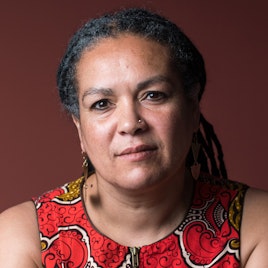Challenge and Opportunity in Africa
By L. Muthoni Wanyeki

Inside Open Society is a look at the leaders at the Open Society Foundations who are advancing our vision to address the world’s most urgent threats to democracy and human rights at a transformative scale.
You can’t grow up in an extremely unequal society without wondering why that is, or without considering the intense poverty that’s so overt it is inescapable. Like many of my colleagues in Open Society–Africa, I came of age in a dictatorship—in my case, the 25-year rule of Kenya’s Daniel arap Moi. I grappled with questions about political freedoms: what it means to have them, and what it means to lack them. These questions drew me to the field of political science and the University of New Brunswick in Canada.
When I returned to Kenya, the constitutional change movement and the fight for democracy were in full flow across Africa. I wanted to be part of this change and gravitated toward organizations such as Amnesty International, the Kenya Human Rights Commission and the African Women’s Development and Communication Network. I’ve always worked on women’s rights, on democracy, on regional integration. What we’re doing at Open Society–Africa is a continuation of this work. It’s a huge privilege to share Open Society’s resources in advancing the cause of change—to provide funding where it’s needed and provide access to social capital through policymaking spaces and by connecting people.
The problems confronting Africa are well-documented: governments encumbered by growing debt, high inflation, unfavorable exchange rates in relation to external debt, and high unemployment—with the majority of jobs being in the informal sector, paying too little to provide the possibility of real livelihoods. There’s been a backsliding in terms of countries’ commitments to democracy, a resurgence in the number of coups, performative elections, and a number of transitions gone wrong.
While we’ve seen coordinated and coherent responses from regional bodies on conflicts such as the current war in Sudan, we’ve also seen inadequate responses in other areas. We’ve seen impunity for bad actors and the consequences of turning a blind eye to dire human rights abuses.
At the same time, we saw renewed energy in Africa in the first year or so of the COVID-19 pandemic in the leadership role played by some of our own institutions and governments. For example, Africa came together and set up common purchasing platforms for vaccines, diagnostics, and therapeutics—and has been working toward becoming more independent in terms of vaccine research and development and manufacturing.
Africa’s “youth bulge” is often cited as yet one more challenge facing a continent in which more than 60 percent of its population is under the age of 25. George Soros recognized the value of investing in youth when he offered scholarships to Black students in apartheid South Africa. Education has been a driver of socioeconomic change in many African countries. Yet, many young people in Africa who’ve invested heavily in education, all the way to the tertiary level, are unable to find jobs today.
The dynamics needed for change, for deepening democracy and trying to make sure that democracy delivers, come from youth movements, protest movements, and social movements exerting pressure on states to expand freedoms, rights, equality, and dignity. Our role at Open Society–Africa is to look for the gaps—the opportunities, moments and actors with the potential to make change, and to try to support them.
Most of our program staff are quite young. Most are women. In the last two years, we have had a very wonderful process of coming together as Open Society–Africa and seeing what participation enabled in terms of younger people’s energy and ideas. Those of us who are getting older and gray-haired can rest content. There’s a new generation behind us.

L. Muthoni Wanyeki is the executive director for Open Society–Africa.


